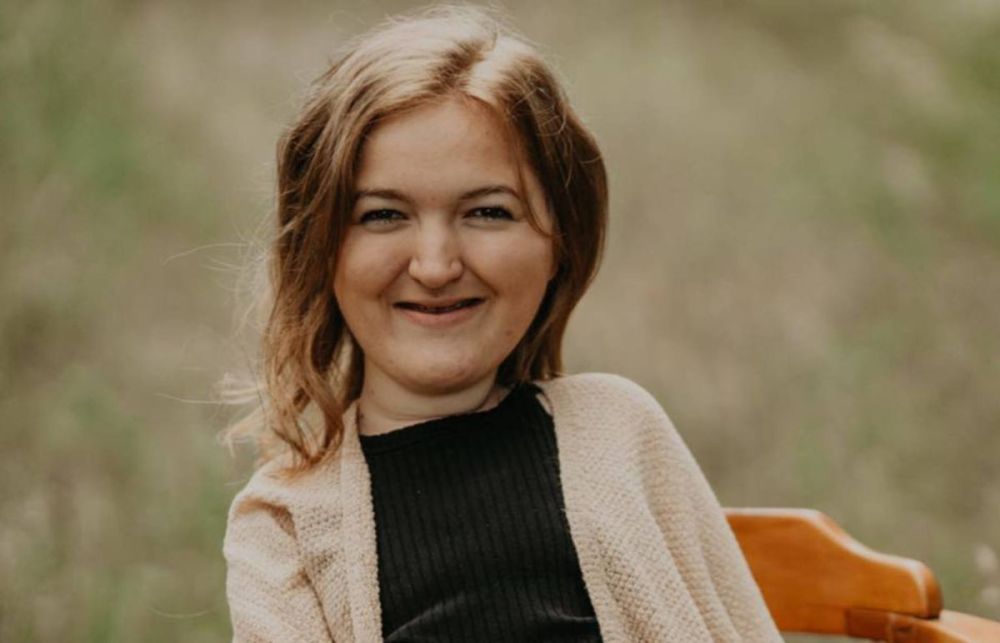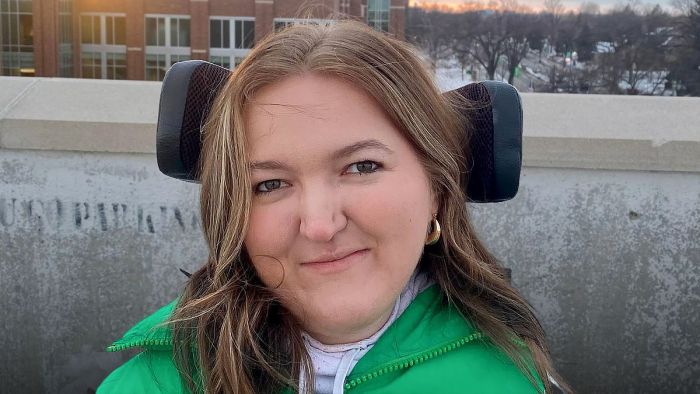Ashley Wohl is a 20-year-old woman with spinal muscular atrophy, type 2. It is a genetic neuromuscular condition affecting the central nervous system, peripheral nervous system and voluntary muscle movement (skeletal muscle). Muscle weakness can impact all parts of life, including mobility, ADLs and challenges with participating in home and community activities.
Working with Spinal Muscular Atrophy Specialists
Wohl was diagnosed with SMA as a child and since that time, has experienced relationships with a wide variety of medical specialists. Some of her specialists include neurologists, pulmonologists, cardiologists, physical medicine and rehabilitation providers, and internal medicine and pediatrics providers. In addition, she has experienced practicing skills within therapies, such as physical therapy, occupational therapy and recreational therapy. Other support services such as social work, seating specialists, respiratory therapy and nursing teams have played roles in her life. All of these services have helped Wohl navigate life with SMA II by addressing needs, anticipating challenges, monitoring progress and making plans for Ashley to tackle her future.
Transitioning from Pediatric to Adult Care
She has had many accomplishments in her youth. Once she turned 17, her providers began discussions about transition to adulthood. This encompasses not only the transition of care to adult medical providers, but also navigating other adulthood topics that may affect someone with a complex condition differently. Discussion continued about decision making, finances, dating, community safety and moving out on her own. One of her biggest goals was going to college. Although this isn’t directly a goal addressed in most medical clinics, it would require input from each of her health care team members to help her plan, create back-up plans and prepare for this exciting change.
"We are so excited for Ashley. Our team treasures the opportunity to smooth the transition from pediatric to adult care and launch a child into a fulfilling adult life," said Tori Bahr, MD, FAAP
That's when “Operation Get Ashley to College” commenced. Wohl’s complex care provider and RN coordinator were ring leaders for the coordination of the steps that followed. Therapeutic recreation and social work played supporting roles in connecting the medical pieces of her puzzle to reality by using tools, strategies and educational interventions to plan for the logistics of going to college with a rare and complex medical condition.

Ashley Wohl, a Gillette Children's patient with Spinal Muscular Atrophy, attends University of North Dakota.
Finding Supports for the SMA College Student
A young adult with SMA going to college may not look the same as other traditional students. For someone like Wohl, this means securing an accessible dorm room, navigating equipment needs, hiring PCAs to come to her dorm room to help with ADLs (activities of daily living: feeding, bathing, dressing, etc...), discussions with disability services for supports on campus, creating a medical emergency plan, navigating transportation and discussing community safety issues such as vulnerability, self-defense and prevention. It was also important to discuss how to smoothly carry out this plan, meet new friends and ensure there is also a plan B, C and D.
With a dedicated specialty health care team, a supportive family and a young woman with a dream, Wohl’s dream became a reality, and she is now completing her 2nd year at the University of North Dakota, studying criminal justice and pre-law. Ashley’s story was propelled forward by a healthcare team at Gillette Children’s that has a wealth of experience in transition-related needs as a patient moves from childhood into adulthood with complex special needs.
 Home Page
Home Page

